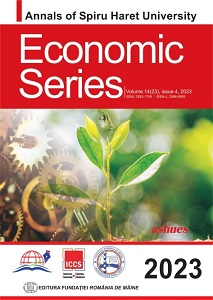Carbon Accounting in the Circular Economy
Carbon Accounting in the Circular Economy
Author(s): Luminița IonescuSubject(s): Energy and Environmental Studies, Economic development, Accounting - Business Administration
Published by: Editura Fundaţiei România de Mâine
Keywords: sustainability reporting; economy; carbon accounting; professional organisations;
Summary/Abstract: Carbon accounting in the circular economy became a priority for the professional organisations because climate changes are an important issue on international level and carbon emissions are increasing across the globe. Research on carbon accounting is a new area, but public or private entities must quantify their greenhouse gas emissions in order to reduce operational costs, and to improve operational efficiency. Carbon accounting and professional organisations can provide leadership and explain what needs to change within organisations in order to achieve carbon emission reductions at the pace and scale that is required. IASB (International Accounting Standards Board) is actively seeking to embed carbon accounting into current accounting practice and to develop standards for reporting on carbon emissions. Professional accountants will play a central role in helping managers to integrate climate and other environmental and social value into traditional reporting. The governments and professional organisations are working together in preparing for and delivering carbon reduction and net zero targets. The European Union has already set targets to reduce greenhouse gas emissions by 2050.
Journal: Annals of Spiru Haret University. Economic Series
- Issue Year: 23/2023
- Issue No: 4
- Page Range: 352-360
- Page Count: 9
- Language: English

